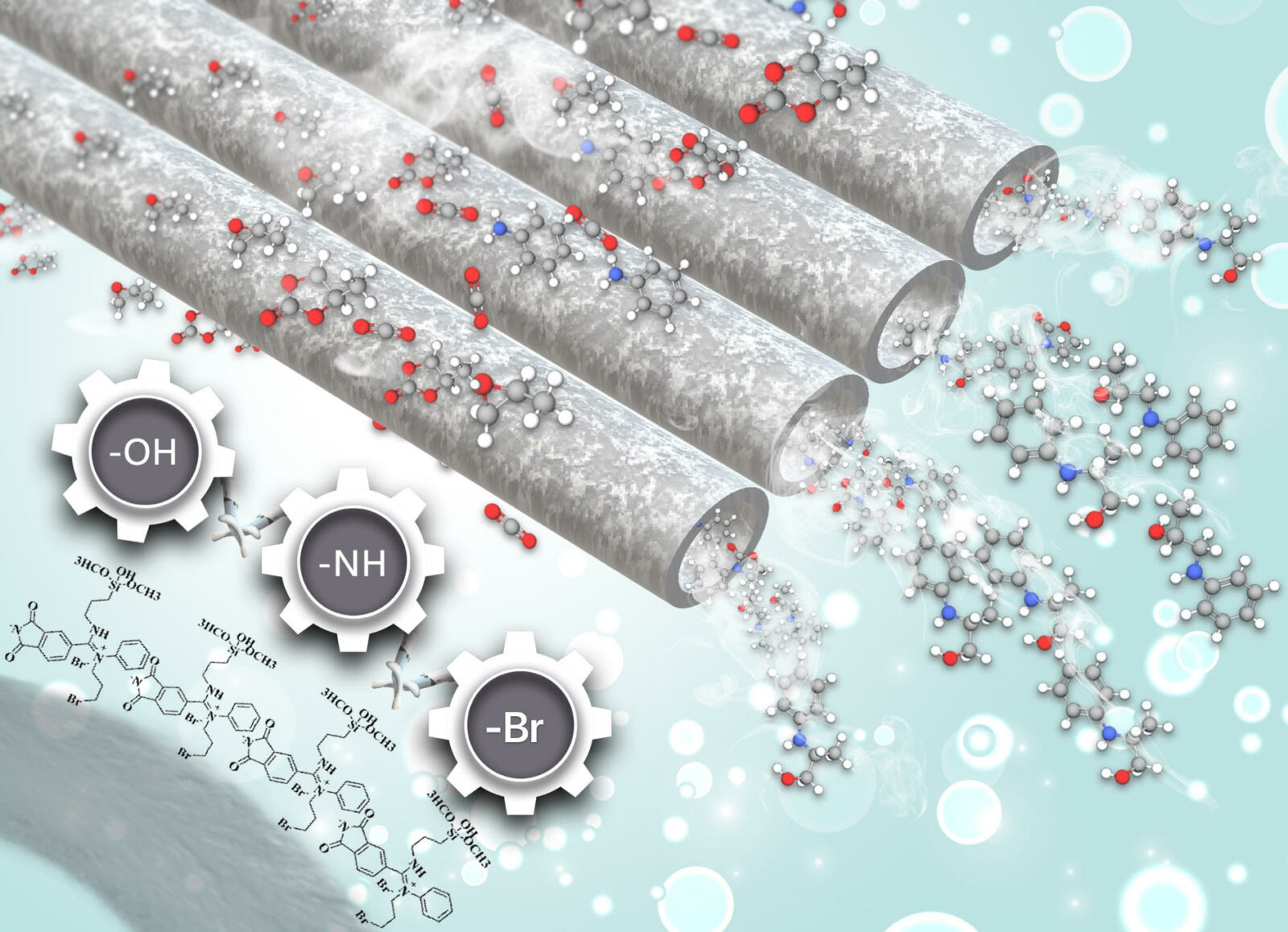Missouri S&T researchers develop faster, cleaner, less expensive chemical reaction process
Posted by Nancy Bowles

Image by Yingxin He
A process developed by researchers at Missouri S&T could lead to cleaner, less expensive and more efficient production of pharmaceuticals, biomass fuels and other products that are made through chemical reactions. The research project is the first time the combined reaction-separation process has been performed without the use of metals or solvents. The research was published and highlighted with cover art in the journal Reaction Chemistry and Engineering, a publication of the Royal Society of Chemistry.
Manufacturers convert substances such as carbon dioxide or biomass into more usable forms through reactive chemistry, often using expensive metal catalysts such as gold or palladium. Reclaiming those catalysts for reuse can be difficult as well as labor and energy intensive, especially when the catalyst and reaction agent are homogeneous: both liquids, for example. The expense of precious metals makes catalyst reclamation even more important.
By using hollow composite polymer fibers with organic linkers such as toluene as a binding agent, the researchers immobilized the catalyst on the surface of the fibers while the reaction product flowed through the hollow tube. The process allows chemists to more easily reclaim the catalyst.
The researchers used a continuous operation, adding chemicals at different points along a system. That allows for quicker heating and a faster reaction rate — seconds or minutes as opposed to the hours needed for batch reactions.
“Think of it as making coffee,” says Dr. Ali Rownaghi, an assistant teaching professor of chemical and biochemical engineering at Missouri S&T and a member of the research team. “You can brew a big pot of coffee, but think how much easier it would be to add together water and coffee along a tube and dispense a cup at the end.”
The pharmaceutical manufacturing aspect of the research supports the University of Missouri System’s investment in research as part of the NextGen Precision Health Initiative and Institute. The investment will help create breakthrough discoveries to improve people’s lives and promote the benefits of teaching and research to Missouri communities. NextGen will also train a new generation of health care scientists and practitioners who will help address the health care needs of the future.
Rownaghi was joined in the research by Dr. Fateme Rezaei, assistant professor, and graduate students Abdo-Alslam Alwakwak, Yingxin He, Ahmed Almuslem, Matthew Senter, all in chemical and biochemical engineering at Missouri S&T, and Dr. Arum K. Itta in the School of Chemical and Biomolecular Engineering at Georgia Institute of Technology.
Very exciting work! Nice job Dr. Rownaghi et.al. This is another example of how involved Chemical Engineers are in manufacturing with its impact on our countries balance of trade. Exciting to work with you.